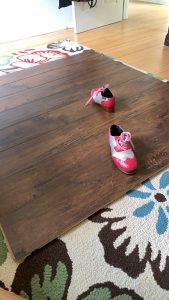
As The University of Alabama moves to remote instruction to finish the semester in response to public health guidelines in the wake of the novel coronavirus, the faculty has kept student needs at the forefront of decision-making.
“I’m very impressed with our faculty,” said Dr. Luoheng Han, associate provost for academic affairs and professor of geography. “Everyone is enthusiastically working to take care of our students and working hard to create strategies to make remote and online teaching effective.”
The University’s spring break was extended a week, and remote teaching and learning begin March 30, but faculty members are already reaching out to students to check on them and ensure students can access instructional methods. The early feedback from students will help in restarting the semester after the extended break, Han said.
The majority of classes will transition to online and remote instruction, and Han said even with some courses where remote learning was first thought too difficult, faculty have been able to find solutions.
“We’ll learn a lot next week, but our faculty has been working creatively to make this work,” he said. “Each department is working as a team, and most everybody began working as soon as the break started because they want to accommodate our students.”
As one example among hundreds, Stacy Alley, associate professor and head of musical theatre at UA, is using innovative methods to finish one of her courses, advanced tap dance. She’s using the online video conferencing program Zoom to virtually meet with students during the regularly scheduled class time to explain assignments, techniques and give feedback to students on dances they record at home. She will send recorded exercises and combinations over Blackboard, the online course tool used by UA, and the students created a Facebook group where they can communicate, too.
Without use of the dance studio, Alley crafted a tap board she can use in her home office, and suggests student use a bathroom or other hard surface for practice and recording their dances.
“I am going to try my best to provide the class my students are paying for and the one they deserve, but I am also going to remain open-minded and flexible when it comes to their needs,” Alley said.
Dr. Jason Bara, associate professor of chemical and biological engineering, who has routinely used social media to connect with students, said he is posting notes with voice-overs while also using Blackboard.
“I’m trying to make it fair to the students,” he said. “Ultimately, communication and flexibility are the key traits that faculty need to demonstrate.”
The UA Center for Instructional Technology and the College of Continuing Studies are partnering in supporting efforts to complete the semester remotely and offering webinars and academic continuity support.
Han said faculty members understand some students might be in difficult situations because of the pandemic, dealing with personal issues while trying to continue the semester.
“Our faculty are working wholeheartedly to take care of our students,” he said.
